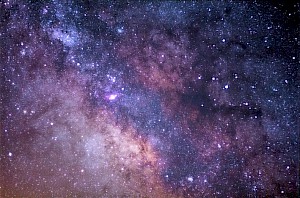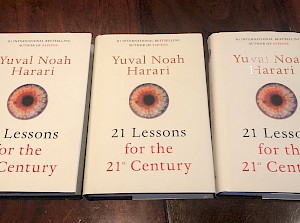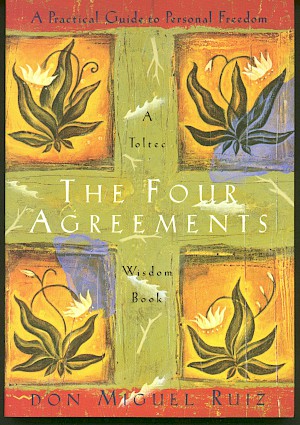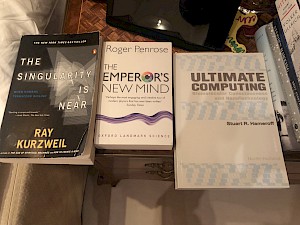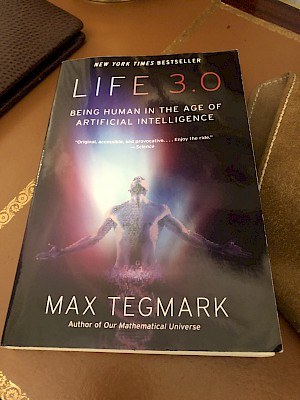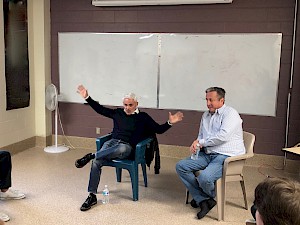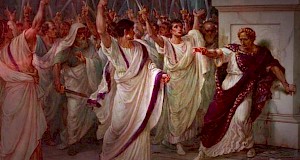Artificial Intelligence and the Human Journey
December 09, 2019“ ....And there was light.” Scroll forward 13.6 billion years and here we are pondering our existence. Conscious beings not exactly sure what our consciousness really is. Will our consciousness and existence evolve with the universe? Are we interconnected with its fate or are we just an accidental temporary blip in this vast expanse of space and time. If you are holding your breath in anticipation this article will provide the answers, feel free to exhale, no such answer is forthcoming. But I have been reading a lot about what some of the possibilities might be and I thought it might be fun to share. In two of my recent articles, I touched on the subjects of consciousness and artificial intelligence (AI). In this final piece in this series, I wish to connect the two and look into the far future.
Again, I will refer to two books I have thoroughly enjoyed reading: “Singularity is Near” by Ray Kurzweil and “Life 3.0” by Max Tegmark . Both authors explore what possibilities may exist for the combination of AI and human intelligence and by extension, the future of humanity. I encourage you to read both books as my only attempt here will be to paraphrase the points each made with respect to AI and humanity.
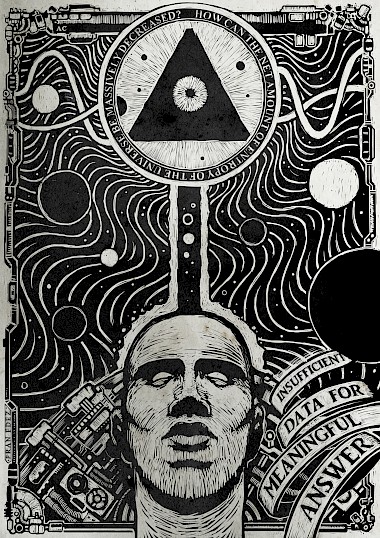 Kurzweil is one of the most important futurists of our time. Over the years, his predictions have been accurate over 80 percent of the time. Amongst other predictions, he believes that it will someday be possible to create hybrid humans that connect our biological self with AI residing in the “cloud.” He refers to this connection as “brain extenders”. Kurzweil further states that cloud based AI will exhibit exponential growth in intelligence, making us humans super intelligent.
Kurzweil is one of the most important futurists of our time. Over the years, his predictions have been accurate over 80 percent of the time. Amongst other predictions, he believes that it will someday be possible to create hybrid humans that connect our biological self with AI residing in the “cloud.” He refers to this connection as “brain extenders”. Kurzweil further states that cloud based AI will exhibit exponential growth in intelligence, making us humans super intelligent.
Perhaps optimistically, Kurzweil also opines that with sufficient genetic technology it should be possible to maintain the body indefinitely, even reversing aging while curing diseases and other illnesses. Much of this will be possible thanks to nanotechnology, which entails the molecule by molecule construction of tools which themselves can rebuild our physical world. In other words, to reprogram the software of life.
Ultimately Kurzweil predicts that human life will be irreversibly transformed and that human beings will transcend the limitations of our biological bodies and brain. I find this difficult to envision, but I imagine he is suggesting that humanity will someday be transformed into some form of non-biological AI. But what about the elusive “hard problem” of consciousness? Our self-awareness. Kurzweil believes there is no objective test that can conclusively determine the presence of consciousness. Therefore, he says nonbiological intelligences will claim to have consciousness and the same full range of emotions that humans claim to have. Personally, I think him taking that position is a cop out. Until we fully understand what consciousness is, how can we know if it’s transferable?
World renown physicist, Max Tegmark is of the view that Intelligence is not all that mysterious and does not need to exist in only biological organisms. Intelligence is just a specific type of information processing and reacting; a physical science performed by a particular set of elementary particles moving around in a range of patterns. And there is no law in physics that says it’s impossible to do better than the human brain. Our brain merely computes and the same type of computation can be performed by any universal computer. Our mind is a dynamic process and is not tied to a specific set of atoms, as our body replaces atoms on a regular basis. (Studies have revealed that about 98 percent of all the atoms in a human body are replaced every year.)
Furthermore, computation is substrate independent. (Substrate is a term used in materials science to describe the base material on which some form of processing is conducted.) Tegmark suggests we think of the neurons in our brains as merely the “soil” where the “plant” of computation takes place. He goes on to explain that computation is only a pattern in spacetime arrangement of the particles in atoms. It’s not the particle themselves, but their pattern that matters when it comes to computation. Hardware is the matter (particles) and the software (computation) is the pattern those particles are arranged in. He concludes that “matter” doesn’t matter. Our minds are patterns.
Read that last bit a few times if you are confused. But what Tegmark is basically saying is that we do not need to exist as biological beings for intelligence to exist. The mind doesn’t require flesh and blood or even carbon atoms.
If Kurzweil and Tegmark’s predictions are heading in the right direction, what does it say about the future? Will humanity be the creator of an ultimate super intelligence that as Kurzweil suggests will radiate outward from the planet until it saturates the universe? If he ends up being right, it begs the question, are WE base reality? Or are we the creation of a previous super intelligence? When asked of the possibility of divine intelligence Kurzweil once said, "Does God exist?" He answers, “not yet.”
Who knows where we are headed, but it’s certainly fun to think about.
I will leave the reader with one final suggestion. Read Isaac Asimov’s (one of the greatest sci-fi writers ever), “The Last Question”. It deals with the question of reversing entropy. In this case, the term entropy is used to describe the evolution of the universe from the singularity of the Big Bang to its ultimate chaotic journey to nothingness. Here, “AC" (the god-like descendant of humanity and the one universal intelligence in the universe solves the entropy problem). The last line is thought-provoking: "The consciousness of AC encompassed all of what had once been a universe and brooded over what was now chaos. Step by step, it must be done.
And AC said, ‘LET THERE BE LIGHT!’
And there was light."



